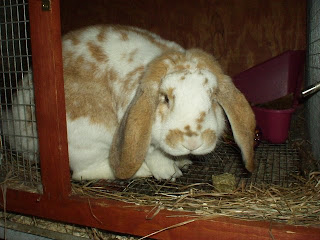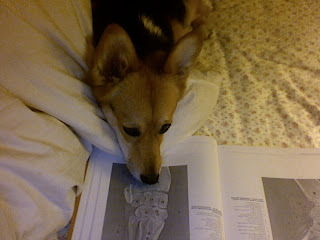The hypothesis has been in the news lately because of a recent study out of Tufts, which found that exposing research animals to various internal parasites could prevent and reverse autoimmune disease, like type 1 diabetes in mice. In order to survive in the host for any length of time, internal parasites release various substances that modulate the host's immune system. That explains why infecting a person with worms can have an effect on inflammatory or autoimmune disorders.
The authors suggest that a baby's desire to explore the world with his mouth is an evolutionary adaptation to train the immune system and expose himself to bacteria, viruses, and internal parasites that will help to regulate the immune response. The authors also suggest that you should have "two dogs and a cat" as your child is growing up so that he can be exposed to their internal parasites, which is... er... a little arbitrary and kind of wrong. First, why would it take two dogs but only one cat? Second, it seems unethical to leave your pets untreated for worms so that you can expose your kids (on multiple levels)- deworm your poor pets!
Besides that little suggestion, the study is really interesting and lends some more credibility to the hygiene hypothesis! We already knew that raising kids with dogs and cats provides protection against the development of allergies and asthma, so this is one more study to show that interaction with the dust, dander, and dirt of nature is good for humans.
Another study was recently released, written by an alum of the U of MN vet school (yay!). In response to the common warning that you shouldn't let your dog lick you on the face, she looked into whether dog owners who do let their dogs give them full-on mouth kisses share more strains of E. coli (a normal GI bacteria for both dogs and humans) with their pets than dog owners who don't allow smooches. The results?
There was no evidence that owners who sleep with their dog or allow face licking were more likely to have shared strains of E. coli, according to the study, which was expected to be published in an upcoming issue of the American Journal of Veterinary Research.That's good news for me, since, let's face it, I'm a dog-kisser (and cats, and the occassional velvet-nosed horse)- nothing crazy, of course, but I think being comfortable with a dog licking your face is some sort of pre-requisite for getting into vet school.
So, what do these studies teach us?

